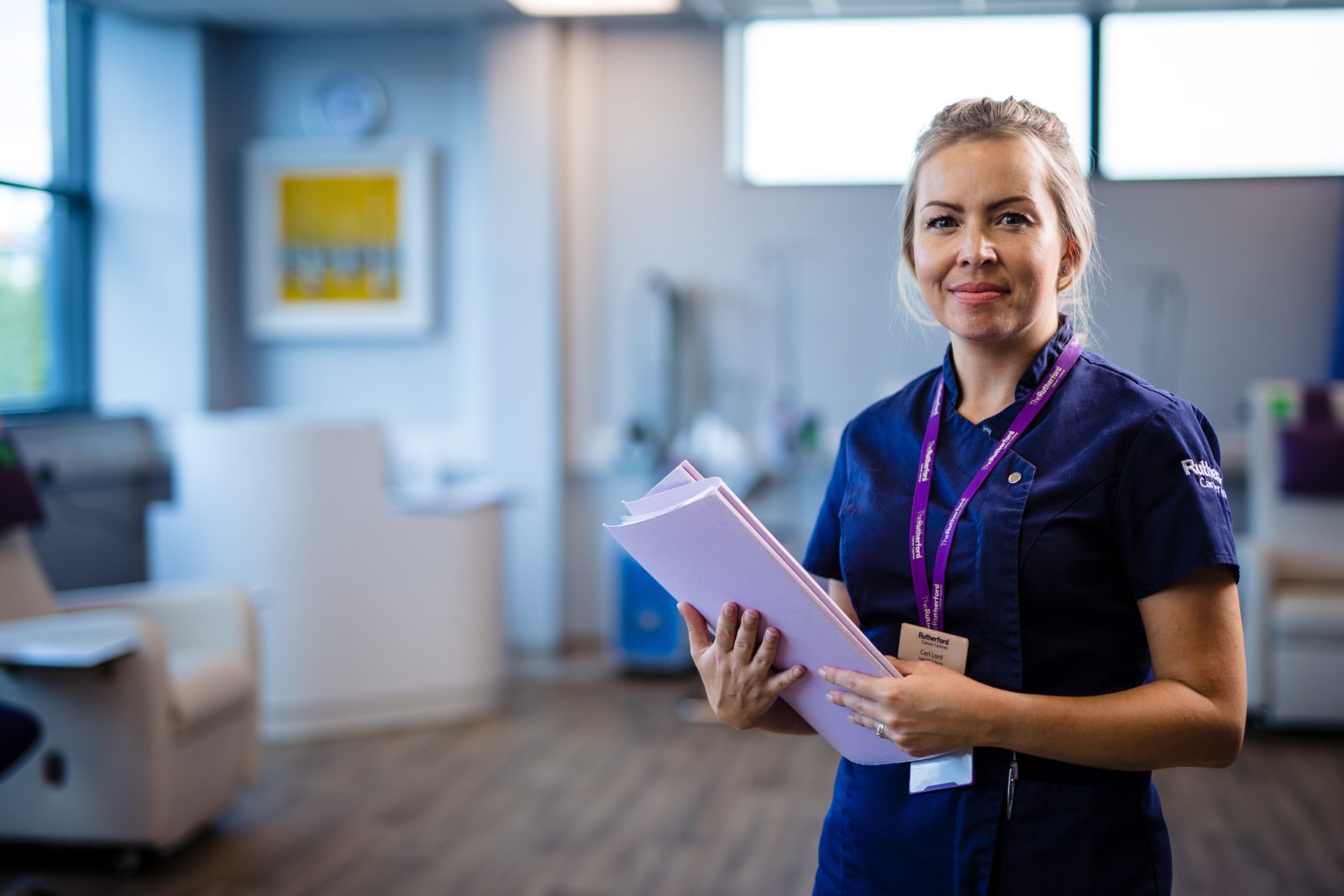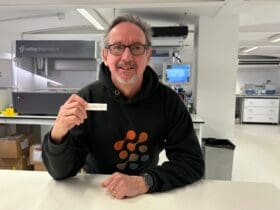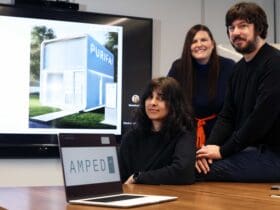Ahead of International Nurses Day (12 May), a lead cancer nurse at Rutherford Cancer Centre South Wales shares an insight into the realities of working in cancer care two years on from the pandemic.
Ceri Lord is Lead Chemotherapy Nurse at Rutherford Cancer Centre South Wales – a UK-wide network of specialist centres treating private and NHS patients – which is located at Celtic Springs Business Park in Newport.
During COVID, Rutherford has seen a 200% increase in patients receiving SACT (systemic anti-cancer therapy which describes all types of drugs used in chemotherapy treatment) across its centres.
According to Lord, who is 37 years old, the past two years has brought challenges for all nurses, and at times the impact on cancer care has been ‘unbelievably tough’, but behind the scenes she and her team have been continuing to treat vulnerable patients amid the wider strain on the UK’s health services. To mark International Nurses Day, she reflects on how far the centre and her team have come in spite of the major challenges that face the UK’s health care system, and the pandemic’s particular impact on cancer services.
Lord said: “I have been an oncology nurse for over 15 years now, and joined the Rutherford team four years ago. I previously worked in acute and respiratory medicine where there were many lung cancer patients. From there I developed a real passion for working with cancer patients – it is a true privilege to be able to support a patient during this very challenging and private time in their life.”
As the lead nurse at the centre, Lord is responsible for manging patients and staff, working closely with consultants and handling referrals. She played a key role in setting up the suite of oncology services available to patients at the Rutherford when the centre first opened.
“Although this is a management role, I still like to attend patient clinics. Having that patient contact is important to me. At Rutherford we are able to offer a truly bespoke cancer service – and with it being a private centre (which also treats NHS patients) we are able to spend more time with our patients which is so important to someone who is undergoing treatment. Many have just got their head round the reality that they’ve gone from being a healthy individual to suddenly being diagnosed with cancer – they need people around them to give them support and strength.
“During the height of the pandemic, patients weren’t able to bring a friend or family member to their appointments. Added to that we obviously had very strict protocols in place for social distancing and wearing full PPE which made what is already a very isolating experience even harder and heart breaking. As a nurse your intuition is to comfort your patient, and working in these conditions made it unbelievably tough.”
It was during the pandemic that Lord pioneered a new home-based cancer care service using a team of specialist mobile cancer nurses to provide patients with systemic anti-cancer therapies, such as chemotherapy and immunotherapy, to those who live within a two-hour drive of the centre.
“The cancer journey isn’t easy for anyone, so if we can do anything to make it more comfortable we will, and that’s what’s so great about this new service. The nursing team have been key to the successful pilot and we’re motivated by the support we’ve had internally to make a real difference to provide a truly patient centred service.”
For patients coming into the centre for treatment, Lord’s team has strict protocols in place to ensure their safety.
“Now that we’re over two years into the pandemic we are a lot clearer on how to create a Covid-safe environment for our patients and staff – previously there was so much conflicting advice, and obviously our patients have compromised immune systems so their safety is paramount.
“Sadly, a big impact the pandemic has had is that we’re now seeing more late stage cancers being diagnosed – often as a result of screening delays or perhaps the patient not feeling safe enough to simply go to the GP. Now more patients are presenting with more serious side effects, which often means the cancer has progressed and it is more difficult to treat.”
Lord and her team also offer a 24-hour support helpline for patients.
“What I would say to anyone who may be worried about a symptom or perhaps are nervous to be screened, is to please go to your GP and get it checked. When cancer is caught early it can be very treatable and curable. For anyone who may have been recently diagnosed, we have some of the best oncology services in our region – and please know you fully supported during your treatment journey.”
“Chemotherapy also isn’t something to be scared of. It definitively has a stigma, and people immediately associate it with being sick and losing their hair, we do absolutely everything we can so allow our patients to lead a normal life during treatment. Many of our patients have very few side effects.
“On a daily basis it feels like we are able to deliver a really positive change to cancer services more broadly, and here in Wales we are working with the NHS to help with the backlog of patients and we feel really privileged to be able to play our part in that and help the system.”









Leave a Reply
View Comments